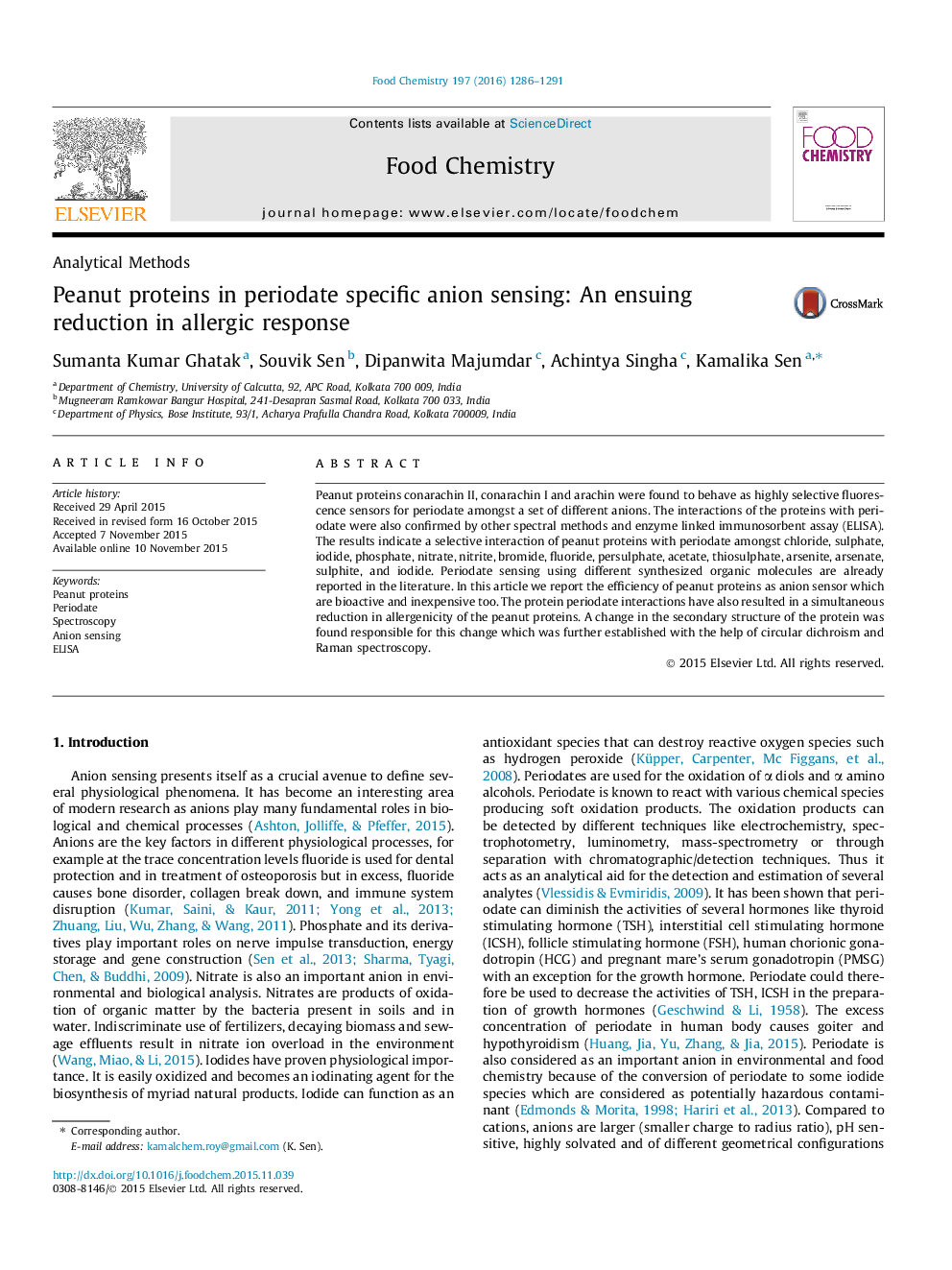| Article ID | Journal | Published Year | Pages | File Type |
|---|---|---|---|---|
| 1183369 | Food Chemistry | 2016 | 6 Pages |
•Peanut proteins can act as highly selective anion sensor for periodate ions.•Periodate-protein complexation may reduce hypersensitive immunogenic responses.•Trace level periodate complexation was observed using different spectral methods.•Considerable loss in allergic response was confirmed using competitive ELISA.
Peanut proteins conarachin II, conarachin I and arachin were found to behave as highly selective fluorescence sensors for periodate amongst a set of different anions. The interactions of the proteins with periodate were also confirmed by other spectral methods and enzyme linked immunosorbent assay (ELISA). The results indicate a selective interaction of peanut proteins with periodate amongst chloride, sulphate, iodide, phosphate, nitrate, nitrite, bromide, fluoride, persulphate, acetate, thiosulphate, arsenite, arsenate, sulphite, and iodide. Periodate sensing using different synthesized organic molecules are already reported in the literature. In this article we report the efficiency of peanut proteins as anion sensor which are bioactive and inexpensive too. The protein periodate interactions have also resulted in a simultaneous reduction in allergenicity of the peanut proteins. A change in the secondary structure of the protein was found responsible for this change which was further established with the help of circular dichroism and Raman spectroscopy.
